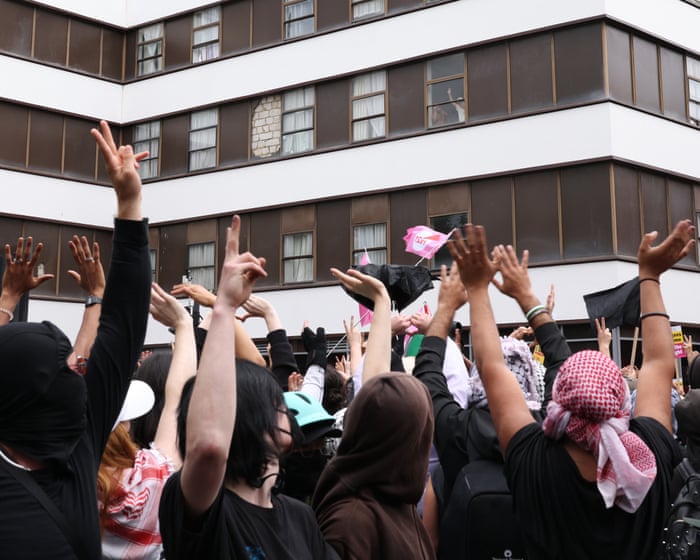“I would rather die than go back to Turkey,” says Ali*. “But life is getting harder here too. I’ve noticed that our Japanese neighbors have become much more distant lately. Some won’t even say hello to us.”
More than ten years after arriving in Japan with his wife and two eldest children, Ali is struggling on two fronts: waiting for a decision on his refugee application, and facing growing hostility toward his family and others in Japan’s Kurdish community.
“Our children are bullied at school, and other kids refuse to play with them… I think it reflects the general situation,” he says.
In July, Ali’s sons were playing in a park near their home in Kawaguchi, close to Tokyo, when a man approached them. According to Ali’s police statement, the man hit his younger son, a primary school student, in the face, knocking him down. He then shouted in Japanese, “Foreigners, go back to your country!”
Weeks later, Ali confronted the man when he saw him again in the park, demanding to know why he had attacked his son. The man denied intentionally hurting the child but added, “If it weren’t for the law, I’d kill you people.”
The alleged assault is the latest in a series of incidents targeting Kurdish residents in the Tokyo suburbs of Kawaguchi and neighboring Warabi. These towns, where halal markets and kebab shops stand alongside convenience stores and ramen restaurants, have become the center of a heated debate over Japan’s growing foreign-born population.
Hostility toward migrants, already visible in the UK, Europe, and the US, seems to be spreading to Japan. The country’s foreign population reached a record 3.8 million at the start of the year, though that still represents less than 3% of the total population. The National Institute of Population and Social Security Research predicts this could rise to 10% by 2070.
Immigration has joined the economy and cost of living as a key election issue and may influence the outcome of next month’s ruling Liberal Democratic Party (LDP) leadership election, with the winner almost certain to become Japan’s next prime minister. After two difficult elections in the past year, the LDP has adopted a stricter stance on immigration, pledging to achieve “zero illegal immigration,” cap new arrivals, and ensure better “social integration.”
Ali and his family are among many Kurds who have fled persecution in Turkey, Iran, and other countries since the mid-1990s. Many settled in Kawaguchi and Warabi, where they initially had good relationships with their Japanese neighbors.
“They got along well for a long time,” said Vakkas Colak, secretary-general of the Japan Kurdish Cultural Association, during lunch at a popular kebab restaurant in Warabi. “They organized fun activities and made an effort to learn about each other’s cultures.
“There were a few cultural differences to overcome, like sorting trash for recycling—and people said we were noisy—but the local government was supportive and tried to make life easier for everyone, such as publishing multilingual guides for garbage disposal.”
The atmosphere soured in 2023 when Japan’s government amended the immigration control law to allow the deportation of migrants awaiting decisions on their refugee applications if it was their third attempt.
This legal change implied that Japan had become a magnet for illegal immigrants, whose presence was leading to increased crime and antisocial behavior—claims that were widely shared on social media and in conservative newspapers.
This shift also coincided with a post-pandemic rise in the number of foreign workers coming to Japan, mainly young men and women from other Asian countries needed to fillJapan faces a significant workforce shortage as its population continues to decline. The increase in migration has revitalized some regional towns but has also been exploited by far-right groups. Small protests by hate groups outside Warabi station were met with a heavy police presence, creating the impression that migrants pose a threat to Japanese society, according to Colak. He noted that these groups, with media support, framed the issue as one of public safety without attempting to engage with the migrant community.
The surge in foreign tourism to Japan after the pandemic, including a record 3.42 million visitors in August, has fueled fears of a “silent invasion.” In response to xenophobic backlash, the government ended a program that partnered Japanese cities with African countries after residents expressed concerns about being overwhelmed by workers from Mozambique, Nigeria, Ghana, and Tanzania.
As of late December, about 7,700 Turkish residents were living legally in Japan, with an additional 1,372 staying illegally, a situation the justice minister described as a “grave concern.”
In Kawaguchi and Warabi, which have a combined population of 670,000, around 3,000 residents are Kurds. This has led to online derogatory references like “Warabistan.” Many Kurdish men work in construction or demolition, with fewer in food service. Abuse against the Kurdish community has increased recently, according to Tatsuhiro Nukui, who runs an NGO supporting Kurds in Japan. The rise in hostility followed a 2023 incident where a dispute between two Kurdish men led to a stabbing and brawl outside a hospital.
Nukui reported that his organization receives hate messages, and Kurdish businesses have been vandalized. Social media users also post photos of foreigners, falsely accusing them of theft. He warned that while Kurds are currently targeted, other foreign communities could be next.
Anti-discrimination efforts have seen some success, such as a court ban on hate group protests in Kawaguchi. Meanwhile, Ali, a Kurdish migrant, awaits a decision on his third refugee application, citing safety concerns in Turkey. Japan has granted refugee status to only one Kurdish migrant and recognized just 190 refugees last year, mostly from Afghanistan. Although his son’s birth in Japan may help his case, Ali remains anxious. For now, his priority is addressing the confrontation he filmed with his son’s alleged attacker.”I’m trying to comfort my 11-year-old, who’s deeply shaken,” he said. “His lip was cut during the attack, and now he wakes up at night terrified that the man is coming back to kill him. All my children are too frightened to leave the house.”
Frequently Asked Questions
Of course Here is a list of FAQs about the complex issue of Kurdish immigrants facing animosity in Japan framed around the specific problem of children being too frightened to play outdoors
BeginnerLevel Questions
1 What is the main issue being described here
The main issue is that Kurdish immigrant families in Japan are experiencing hostility and discrimination from some local residents This animosity has become so severe that their children feel too scared and unsafe to play outside
2 Why are there Kurdish immigrants in Japan
Many Kurds came to Japan in the 1990s fleeing conflict and seeking asylum from countries like Turkey While their asylum applications are often still under review or have been denied they have remained in Japan forming small communities
3 Why is Japans population decline relevant to this
Japan has a rapidly aging society and a low birth rate creating a severe labor shortage This has led to a national debate about whether to accept more immigrants to fill jobs and support the economy which is why the situation of current immigrant groups is so important
4 What kind of animosity are they facing
This can range from verbal harassment and racist comments to more organized protests outside their homes and community centers This creates an intimidating environment that makes families especially children feel unwelcome and threatened
IntermediateLevel Questions
5 Why dont the children just play inside or in designated parks
The fear isnt limited to a specific park its about their entire neighborhood environment When a child hears hostile shouts or sees angry protesters near their home they feel unsafe anywhere outdoors This is about their fundamental sense of security in their own community
6 Isnt Japan known for being safe How can this happen there
Japan does have a very low crime rate overall However this safety doesnt always extend uniformly to minority and immigrant groups who can face significant social discrimination and xenophobia which is a different type of unsafety
7 What is the Japanese government doing about this
The situation is complex Local governments sometimes provide support but Japans strict immigration policies and lack of a comprehensive law against racial discrimination make it difficult to address the root causes Police may intervene in specific incidents but often cant stop the underlying social tension
8 What are the longterm effects on these children
Being deprived of safe outdoor play and living in a state of fear can lead to anxiety



